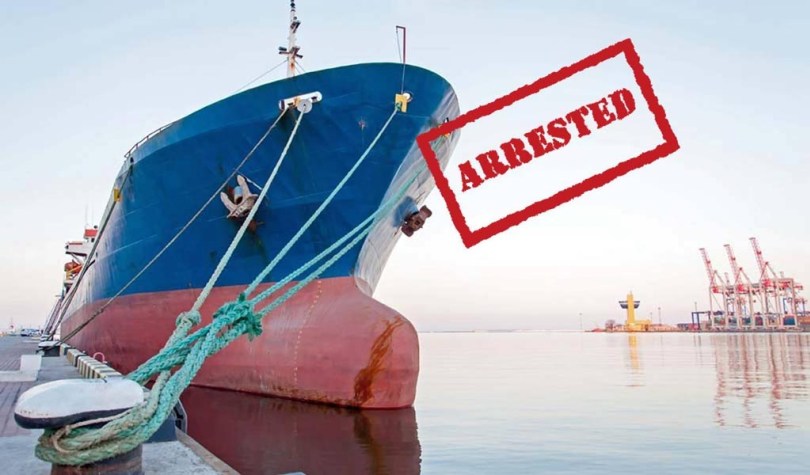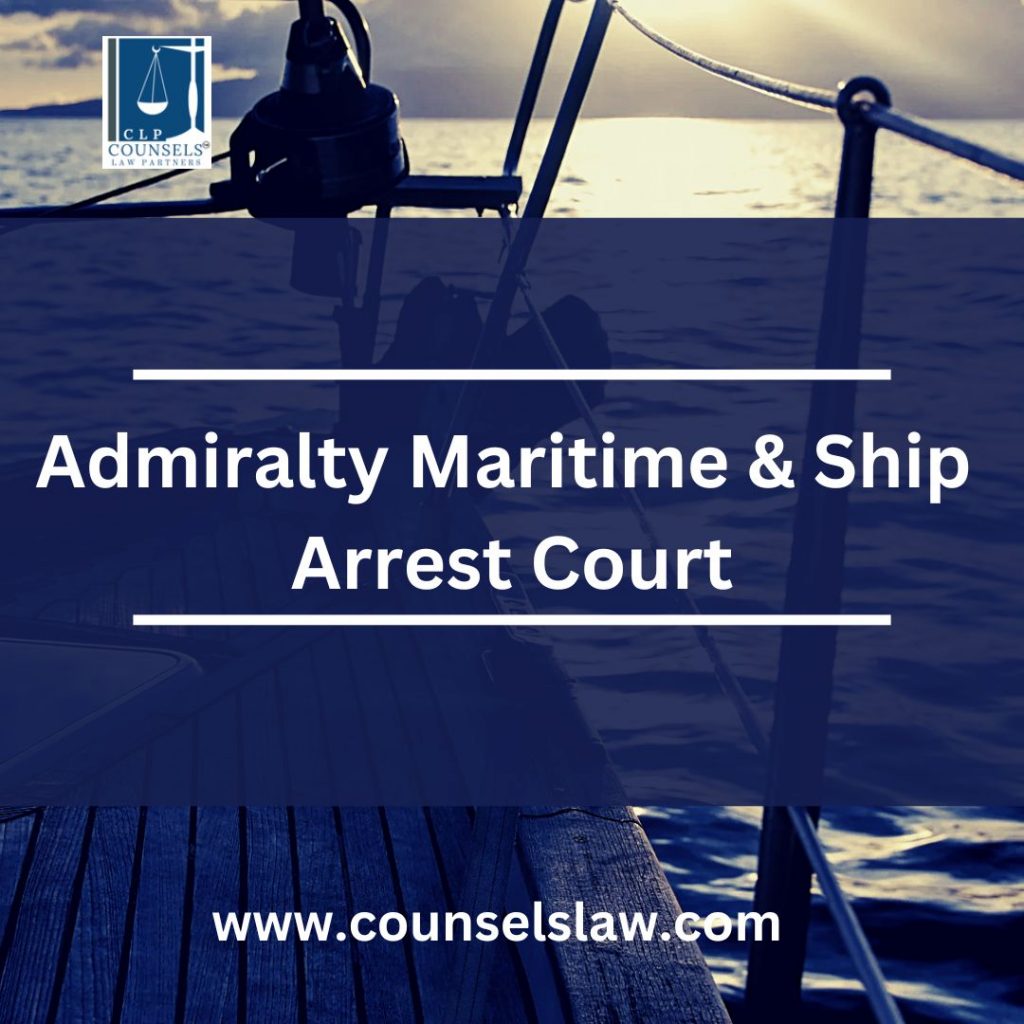The Admiralty Maritime & Ship Arrest procedure is very important to know for everyone particularly those who are in the shipping business and the admiralty lawyer. Bangladesh is surrounded by rivers and seas. Therefore, the laws about admiralty, maritime, and ship arrest are important to know all citizens. The law on Admiralty and Maritime can be traced back to the Admiralty Courts Act of 1840.
Thereafter, over time, the law developed with the Admiralty Court Act, of 1861, The Courts of Admiralty Act, of 1891, and the Admiralty Rules of 1912. Now in Bangladesh, the Admiralty Courts Act 2000 deals with all issues about admiralty. This article will focus on Admiralty Maritime & Ship Arrest law, admiralty court jurisdiction, enforcement of jurisdiction, and court fees.
Admiralty Maritime & Ship Arrest Court
The High Court Division of the Supreme Court of Bangladesh has an original jurisdiction to deal with the cases of admiralty. It extends to ships or vessels anchored at any port in Bangladesh.

Admiralty Court Jurisdiction:
The Admiralty Court shall have jurisdiction to hear and determine any of the questions or claims about the possession or ownership of a ship, question as to possession, employment or income of that ship, claim on a mortgage of or charge on a ship or any share therein, claim for damage done by a ship, any claim for damage received by a ship;, claim for loss of life or personal injury, any claim for loss of or damage to goods carried in a ship, any claim arising out of any agreement relating to the carriage of goods in a ship or to the use or hire of a ship, any claim like salvage of life from a ship, any claim in respect of towage of a ship or an aircraft, any claim for forfeiture or condemnation of a ship or of goods
Mode of exercise:
The admiralty jurisdiction of the High Court Division may be exercised by way of, in persona manduction in rem with some conditions. The Admiralty Jurisdiction of the High Court Division as the Court of Admiralty may be exercised through an action in rem against the ship, aircraft, or property.
Institution of Suit: An action or a suit before the High Court Division shall be instituted by a plaint drawn up, subscribed, and verified according to the Code of Civil Procedure, 1908. As per section 7 of the Admiralty Act 2000, the maximum court fee for Admiralty suits is Taka.1, 00,000 (One Lac), except the claims by the master or seamen for wages earned on board.
Enforcement of Judgment:
The Hon’ble Court upon satisfaction on a well-founded case may enforce the payment of the judgment by attachment against the party on whose behalf a caveat has been entered, and by the arrest of the property if no caveat has been entered. An order of sale by the Hon’ble Court will be conducted by the Marshal in a manner as a sale of moveable property in execution of a decree in an ordinary civil suit unless the Hon’ble Court otherwise orders. In practice, if a bank guarantee is provided, it will be en-cashed in favour of the judgment debtor. Foreign judgments and arbitration awards are also enforceable by the Hon’ble Court.

Counsels Law Partners CLP, a full-service law chamber in Dhaka Bangladesh is one of the leading Law Firms having expertise in Admiralty, Maritime, ship Arrest Procedures, and related legal services. If you have any queries please contact us:
E-mail: info@counselslaw.com
Phone: +8801700920980 (WhatsApp) | +8801947470606
Address: House 39, Road 126 (3rd Floor) Islam Mansion, Gulshan 1, Dhaka.
FAQs on Admiralty Maritime & Ship Arrest in Bangladesh
1. What is the procedure for Admiralty Maritime & Ship Arrest in Bangladesh?
- The High Court Division of the Supreme Court handles cases involving ships or vessels anchored at Bangladeshi ports, covering claims like ship possession, ownership, damages, mortgages, personal injury, and loss of goods.
2. What laws govern Admiralty and maritime issues in Bangladesh?
- Historical laws include the Admiralty Courts Act of 1840, the Admiralty Court Act of 1861, The Courts of Admiralty Act of 1891, and the Admiralty Rules of 1912. The current law is the Admiralty Courts Act 2000.
3. Which court has jurisdiction over Admiralty cases in Bangladesh?
- The High Court Division of the Supreme Court of Bangladesh.
4. What types of claims can the Admiralty Court address?
- Claims related to ship possession, ownership, employment, damages, mortgages, personal injury, loss of goods, salvage, towage, and forfeiture.
5. How is Admiralty jurisdiction exercised?
- Through actions in rem (against the ship or property) and actions in persona (against an individual).
6. How is a suit instituted in the Admiralty Court?
- By filing a plaint according to the Code of Civil Procedure, 1908, with a maximum court fee of Taka 1,00,000.
7. How are judgments enforced in Admiralty cases?
- Through attachment and arrest of property if no caveat is entered, and by sale of the property if ordered by the court. Foreign judgments and arbitration awards are also enforceable.
For more details, contact Counsels Law Partners CLP:
- Email: info@counselslaw.com
- Phone: +8801700920980 (WhatsApp) | +8801947470606
- Address: House 39, Road 126 (3rd Floor), Islam Mansion, Gulshan 1, Dhaka.


Excellent article, I need to enhance the content i have truly.
I have attempted to blog on third part systems, it did just
not transpire the real way I needed it to. However
your website has
providing me a desire to do so. I will be bookmarking your website
and checking it out from time to time. Many thanks!
Thank you.